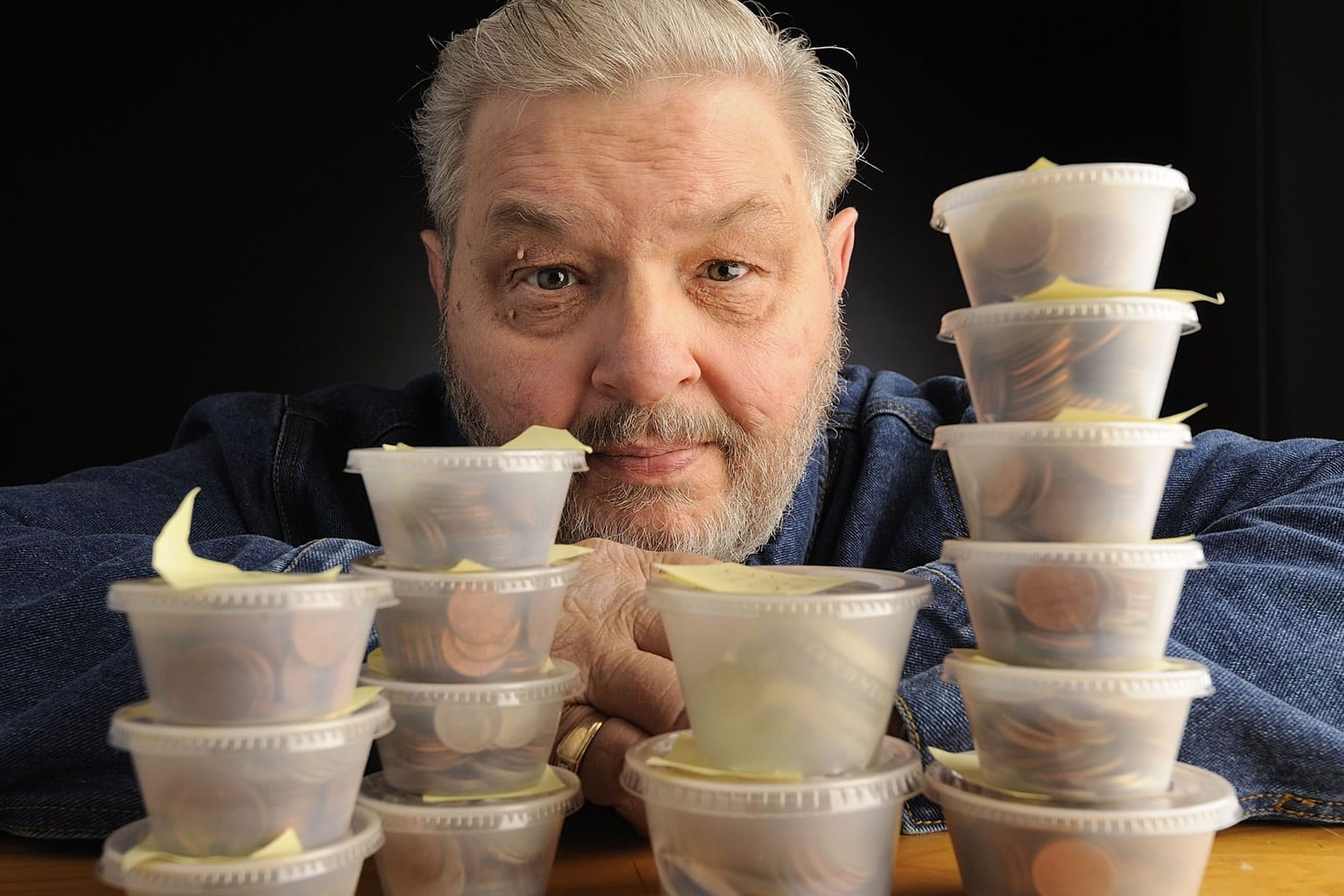Share served 103,000 meals in 2010 through its Hot Meals Program.
When Larry Sword took up walking to lose weight, he started noticing coins on the ground.
Sword picked them up and put them in a small plastic container he got from a restaurant. Eventually, Sword wound up with 15 small plastic containers containing a total of $35.74.
He took the money to Share, the county’s leading provider of services to the homeless and hungry, and made a holiday donation.
All nonprofits like to see a donation with some zeroes to the right of the dollar sign, but they also welcome change for charity. Modest contributions are the backbone of her organization, said Diane McWithey, Share’s executive director.
“If no one made a $10 donation, we wouldn’t be in business,” McWithey said.
Amounts smaller than $35.74 have actually changed lives, according to a foundation that specializes in small-scale philanthropy.
Keith Taylor, president and executive director of Modest Needs Foundation, based in New York state, has a couple of favorite examples. After two miscarriages, a woman became pregnant for the third time. She continued to work until her sixth month.
“When she stopped working, the family income was cut in half,” Taylor said. “She needed to have some medication to keep from going into labor. They had health insurance, and the co-pay was $15 a dose. She needed two doses. They could barely make the rent, so it was $30 they did not have. She asked for $30 for two months of medication to get her into her eighth month.”
With such a small amount, Taylor said, the staff just took up a collection and sent the woman $30.
“We got a letter six months later,” Taylor said. “She has a healthy baby girl. For $30, that’s pretty remarkable.”
Another donation shows how a seemingly modest amount of money can provide a tipping point. In the early days of Modest Needs, a woman who was going to lose her house asked for $300.
“It was going to take a miracle because we had maybe $280,” Taylor said. “But I went to the post
office, and a teacher who’d heard about Modest Needs had her class donate their ice cream money.”
It came to about $40, which — added to the $280 on hand — was more than enough to pay the bill.
“There was a way to pay the bill online,” Taylor said. “The only way the woman knew what happened was when nobody showed up the next day to auction her house. That happened with ice cream money.”
The poster child for small-change charity is a Northwest nonprofit that got its start with 3 cents. Now, the Found Money Fund at the University of Idaho is worth about $300,000.
It started in January 1981, when Terry Armstrong was walking to work in Moscow, where the university is located, and found three pennies. The professor put them in a jar in his office; a secretary who’d just found a nickel dropped it in the jar. At the end of the year, the jar held $10.40 in pennies, nickels, dimes and quarters people had found around campus.
After two years, they had $32. That’s less than Sword collected in one year of walking, although the Idaho fund got some national media coverage that generated a lot more — and some much bigger — contributions.
Sword, a retired railroad worker, said he accumulated his donation by following a slogan: “Never put your feet where your eyes have not been.”
A Union Pacific Railway conductor for 42 years, Sword said he’s identified some productive places to keep his eyes peeled.
“People drop change around fast-food restaurants,” Sword said.
Wherever that nickel or dime might fall, many people never give it a second thought, McWithey said.
“We’re in a hurry, we drop change and we say, ‘Whatever …’ and we walk away from it,” Share’s executive director said.
McWithey said $30 is enough to pay for a two-night stay in a shelter. “It can pay for three weekends of food for a child in our backpack program.
“It all makes an impact,” McWithey said.
Taylor, the founder of Modest Needs, echoed her thoughts.
“There’s an old saying,” Taylor said. “The biggest mistake people make is to do nothing because they can only do a little.”




